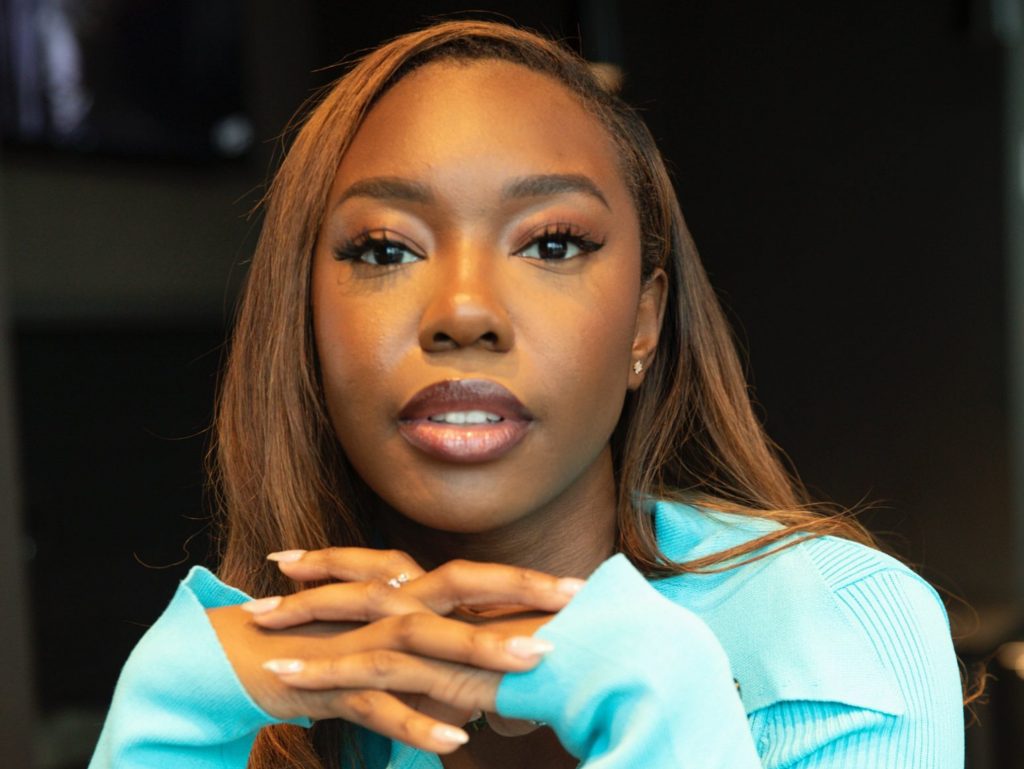- Olamide Olowe is the founder and CEO of Topicals, which makes products for chronic skin conditions.
- On Thursday, Topicals announced a $10 million Series A round led by the venture-capital firm CAVU.
- Olowe gave her advice for pitching investors with confidence as a Black female founder.
Olamide Olowe started her skincare brand after growing up with chronic skin conditions such as boils and ingrown hairs. These issues weren’t commonly discussed by her peers or medical professionals, she said.
“I grew up feeling really isolated and spent a lot of time going to dermatologists and primary-care physicians trying to find treatment,” Olowe told Insider. “I wasn’t getting results and I didn’t really understand why.”
In college, Olowe learned that people of color were not only underrepresented in the skincare industry but also widely missing from clinical trials and research.
“Darker-skin people were not as studied and weren’t well understood when it came to formulation for prescription or over-the-counter products,” she said.
Motivated to change both industry and beauty standards, she founded Topicals in 2020, when she was 23, after graduating from the University of California, Los Angeles. Her company creates skincare products for chronic conditions that can be difficult to treat and contribute to lower self-esteem.
Topicals announced Thursday a $10 million Series A funding round led by the venture-capital firm CAVU, which invests in consumer-product brands such as Beyond Meat and Oatly. This brings Topicals’ total funding to $14.8 million.
Here’s how Olowe pitches investors with confidence.
Building up confidence
Topicals launched with $2.6 million in seed funding, which didn’t come easily for Olowe. Before last year, only 93 Black female founders had raised $1 million or more in venture capital, according to ProjectDiane, a biennial report on the state of Black and Latina women founders by the organization Digitalundivided.
“It took me about two years and probably close to a hundred pitches to get funding,” she said.
Maybe it would have been a faster process if she weren’t young, Black, and female, but it taught her how to build confidence, she added.
“I figured out really quickly, at 23, when I first raised capital how to be sure of myself and speak about my business in a way that no one could poke holes through,” she said. “I go into every room. I know what I’m talking about.”
Above all, she doesn’t let the statistics on funding for Black female founders trip her up.
“There are so many reasons why I shouldn’t have the funding,” she said. “But I don’t even think about why this shouldn’t happen.”
Color the data with culture
Olowe anchors her pitch in her knowledge and preparedness, which builds respect among investors, she said. She uses data to explain why her products are necessary, profitable, and influential.
“It’s always driven by data, and then we color that data with culture,” she said.
That means she provides more context to give investors a deeper understanding of the market for skincare products, especially within communities of color. For example, when investors asked why she didn’t have an acne treatment in her product line, she said she wanted to start with a treatment for hyperpigmentation, which is a common skin issue for people of color.
“Before we jumped into the market, a lot of people of color didn’t have a ton of products that they could use,” she said. “But their spending was seven to eight times higher than other communities.”
The roles have reversed
Her second time raising capital wasn’t as tough as the first, Olowe said, because the investors came to her. This shift showed her that she had leverage as the one offering them an opportunity.
“I wasn’t begging for money,” she said. “I knew this company was going to be successful. I knew what this category was going to be like in the next two to five years.”
And if an investor passes up the opportunity, they get left behind.
“I’m extremely scrappy,” she said. “I don’t come back to you asking for money.”
